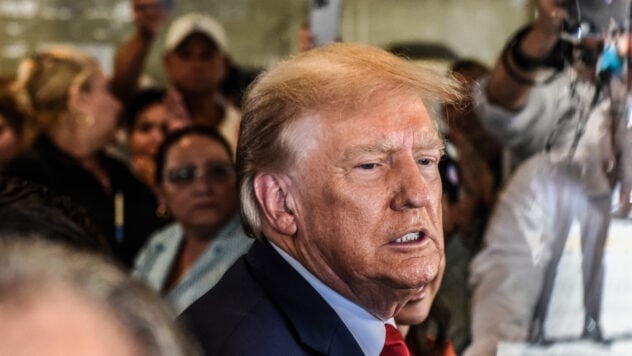
Former US President Donald Trump was found guilty early of fraud in a lawsuit filed by the New York Attorney General, who accused Trump of exaggerating his wealth by billions of dollars a year in financial statements provided to banks and insurers.
As Bloomberg writes, this was a “serious blow” for the former president in the largest civil case against him.
Ruling handed down by Judge Arthur Engoronin Manhattan, resolves the state's most serious claim against the former president and narrows a trial that is scheduled to begin as early as Oct. 2. The non-jury trial will now focus on the state's remaining claims, including falsifying business records and making false financial statements. The lawsuit seeks $250 million in damages and other punitive damages.
Now watching
Engoron rules that New York Attorney General Letitia James, which filed the lawsuit in September 2022, provedthe liability of Trump, his sons Donald Trump Jr. and Eric Trump, as well as the Trump Organization and its former CFOAllen Weisselberg.
He also ordered Trump's lawyers to pay sanctions of $7,500 each for repeatedly advancing untenable legal theories in the case.
Though the case has been overshadowed in recent months by four criminal cases brought against Trump, James casecould have far-reaching consequences, Bloomberg notes.
In addition to monetary penalties, the attorney general is seeking a ban on Trump serving as an officer or director of any company in the state where he was born and where he first acquired fame.
In a statement posted on his social media platform Truth Social, Trump repeated many of his claims in the case, including some that were rejected by the judge, whom he called a “Trump hater.” The former president said he was worth more than his financial statements, that banks suffered no harm from his statements and that disclaimers in the statements made clear they should not be relied upon.
— This is very unfair, and I call on the highest courts of New York State or the federal system to intervene,— Trump said.
In the lawsuitTrump is accused of inflating the value of his largest assets from 2011 to 2021 to get better terms from banks and insurers. The judge sided with James, arguing that Trump had repeatedly committed fraud by overstating the value of some of his top properties in his annual financial statements.
In his decision, the judge cited several examples, including that the former president often said his Trump Tower penthouse was three times larger than it actually was, even after he was warned of the mistake.
< p>JudgeEngoron described Trump's defense team as inhabitants of a “fantasy world”in which “rent-regulated apartments cost the same as unregulated, land-restricted ones is worth as much as land without restrictions, restrictions can evaporate into thin air, one party's denial of responsibility imposed on the other justifies the other party's lies.
The judge was referring to Trump's habit of valuing properties without regard to restrictions on their use, as well as his contention that denying responsibility for his valuations is a signal to banks and accountants that they should make their own valuations.
According to court documents, Trump valued his Mar-a-Lago resort in Palm Beach, Florida, at more than $700 million based on the false premise that the property could be developed entirely with housing, even though he himself agreed to restrictions limiting its use as a social club.
— I never thought these statements would be taken very seriously,— Trump said during testimony in the case in April.
Trump called the clauses “useless” because they mean the statements should not have a significant impact on the banks' decisions. However, the judge said the clauses were unenforceable and could not protect Trump from liability for fraud.
— The defendant's reliance on these “useless” reservations are useless, — Engoron said.
In his decision, Engoron also noted that Trump violated an earlier court order designed to limit alleged violations of New York business law during the trial.
< p>— Even with a preliminary injunction and an independent monitor to enforce it, defendants continued to disseminate false and misleading information in the conduct of their business, — said Engoron.
What next?
Trump, who claims New York Attorney General Letitia James' lawsuit is politically motivated, will likely appeal the decision. He is also making a last-ditch effort to delay the trial, arguing in a New York appeals court that Judge Engoron failed to narrow the case after the appellate panel ruled that some of the state's claims may be too old.
James argued that a trial of her fraud claim is unnecessary because the evidence that Trump violated New York executive law is overwhelming.
The attorney general said in court papers that her team had gathered evidence that that Trump inflated his net worth by up to $3.6 billion annually by exaggerating the market value of real estate, including his Mar-a-Lago estate in Florida.
Trump objected to the state's motion for so-called summary judgment , saying that the annual financial statements it provided to banks and insurers contained “persuasive qualifications” that they must carry out the assessment themselves. He also argued that James had no standing to sue because the banks and insurers did not suffer any financial losses.

